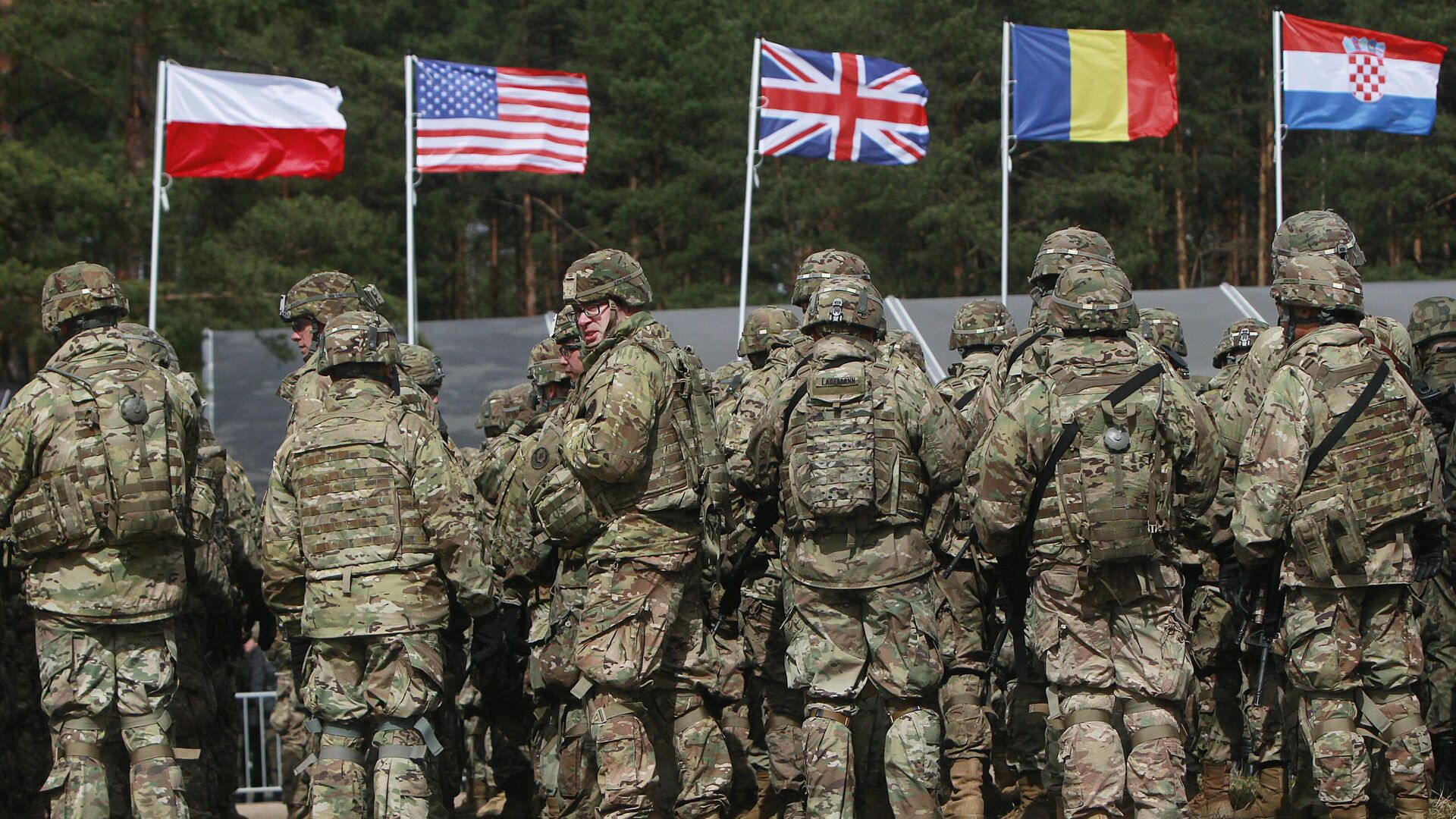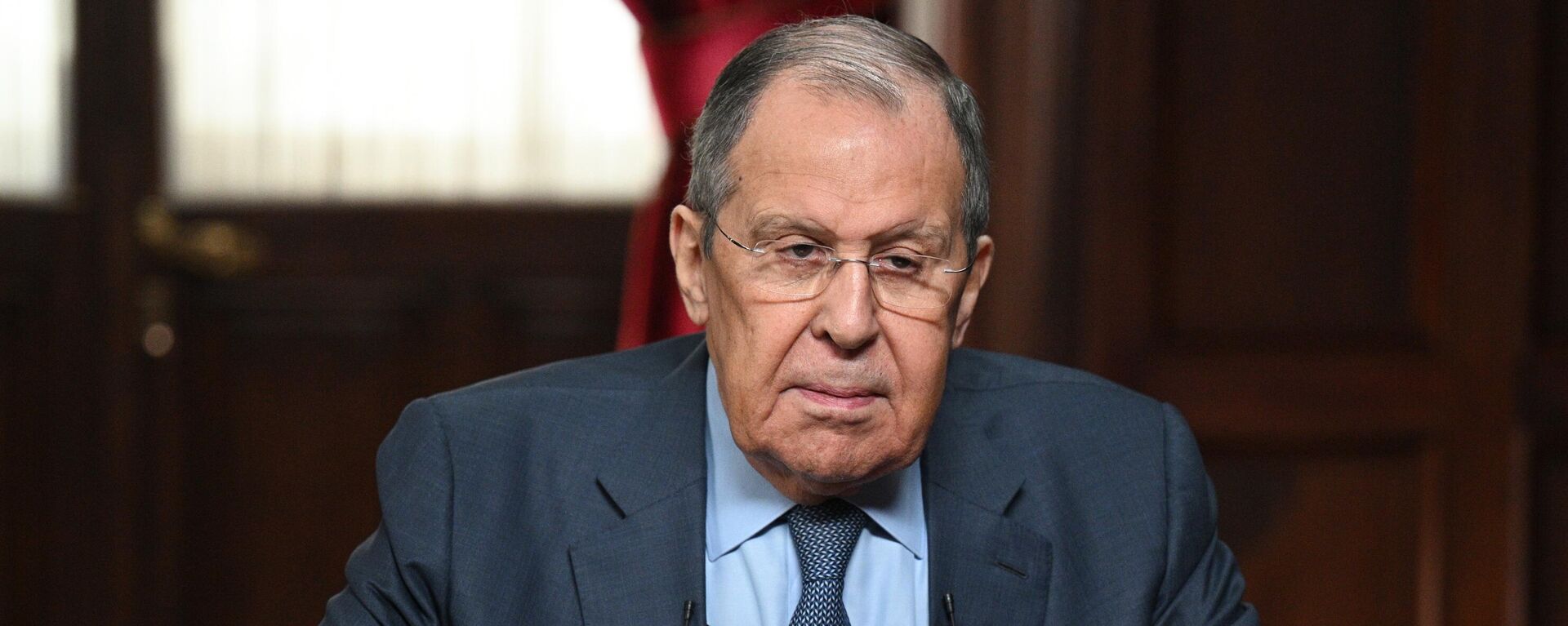https://en.sputniknews.africa/20240421/wests-focus-on-military-industrial-complex-often-prioritizes-war-over-peace-says-african-expert-1066169311.html
West's Focus on Military-Industrial Complex Often Prioritizes War Over Peace, Says African Expert
West's Focus on Military-Industrial Complex Often Prioritizes War Over Peace, Says African Expert
Sputnik Africa
Recently, in an interview with Sputnik, Russian Foreign Minister Sergey Lavrov refuted the West's narrative that Russia will attack the EU. He said that it... 21.04.2024, Sputnik Africa
2024-04-21T18:05+0200
2024-04-21T18:05+0200
2024-04-21T18:05+0200
sergey lavrov
russia
west
ukraine
brics
european union (eu)
opinion
international
north atlantic treaty organization (nato)
https://cdn1.img.sputniknews.africa/img/07e8/02/1b/1065284610_0:0:3208:1805_1920x0_80_0_0_9bee05acf23af53aa138854c8a493c0c.jpg
The West's focus on the military-industrial complex often prioritizes narratives of war over peace, Professor Emmanuel Remi Aiyede, a political science expert from the University of Ibadan in Nigeria, told Sputnik Africa, commenting on recent remarks made by Russian Foreign Minister Sergey Lavrov.He contended that the unilateral Western economic sanctions imposed on Russia in connection with the ongoing conflict in Ukraine have had a boomerang effect, negatively affecting both Russia and the imposing countries, as well as other countries around the world, especially in Africa.The disruption of global logistics chain and the resulting food crisis have been detrimental to the African continent, according to Professor Aiyede.Despite the resilience demonstrated by Russia, Professor Aiyede emphasized the need for a peaceful resolution to the conflict.Growing Appeal of BRICS for African NationsTurning his attention to the recent developments in global international relations, Professor Aiyede highlighted the attractiveness of BRICS for African countries.On Friday, during his interview, Minister Lavrov said that the main current challenge for the BRICS economic grouping is to ensure the smooth entry of new members, including the two new members of the African bloc, namely Egypt and Ethiopia.Professor Aiyede sees BRICS as a promising alternative to the existing global system, offering opportunities for development and collaboration. According to him, with the inclusion of Egypt and Ethiopia, and Nigeria's expressed interest in joining, BRICS provides a platform for African nations to diversify partnerships and explore alternatives to the Western-dominated economic system.
https://en.sputniknews.africa/20240419/1066144853.html
russia
west
ukraine
Sputnik Africa
feedback@sputniknews.com
+74956456601
MIA „Rossiya Segodnya“
2024
Muhammad Nooh Osman
https://cdn1.img.sputniknews.africa/img/07e7/04/0a/1058467512_0:0:1280:1280_100x100_80_0_0_ec723833bcbfcaed2e21952965ad99e4.jpg
Muhammad Nooh Osman
https://cdn1.img.sputniknews.africa/img/07e7/04/0a/1058467512_0:0:1280:1280_100x100_80_0_0_ec723833bcbfcaed2e21952965ad99e4.jpg
News
en_EN
Sputnik Africa
feedback@sputniknews.com
+74956456601
MIA „Rossiya Segodnya“
Sputnik Africa
feedback@sputniknews.com
+74956456601
MIA „Rossiya Segodnya“
Muhammad Nooh Osman
https://cdn1.img.sputniknews.africa/img/07e7/04/0a/1058467512_0:0:1280:1280_100x100_80_0_0_ec723833bcbfcaed2e21952965ad99e4.jpg
sergey lavrov, russia, west, ukraine, brics, european union (eu), international, north atlantic treaty organization (nato)
sergey lavrov, russia, west, ukraine, brics, european union (eu), international, north atlantic treaty organization (nato)
West's Focus on Military-Industrial Complex Often Prioritizes War Over Peace, Says African Expert
Muhammad Nooh Osman
Writer/Editor
Recently, in an interview with Sputnik, Russian Foreign Minister Sergey Lavrov refuted the West's narrative that Russia will attack the EU. He said that it makes no sense for Moscow to attack Europe, noting that it is a plan used by NATO countries to get money from their parliaments to continue waging war against Russia in Ukraine.
The West's focus on the military-industrial complex often prioritizes
narratives of war over peace,
Professor Emmanuel Remi Aiyede, a political science expert from the University of Ibadan in Nigeria, told
Sputnik Africa, commenting on recent remarks made by Russian Foreign Minister Sergey Lavrov.
"I think, first and foremost, the global system, especially as led by the West, is likely built around the military-industrial complex, and that's why peace all over the world is not necessarily the first objective of the West in international relations. So the idea of pushing narratives of war is very central to this orientation of the West in terms of a robust system of governance," Professor Aiyede said.
He contended that the unilateral Western economic sanctions imposed on Russia in connection with the ongoing conflict in Ukraine have had a boomerang effect, negatively affecting both Russia and the imposing countries, as well as other countries around the world, especially in Africa.
The disruption of global logistics chain and the resulting food crisis have been detrimental to the African continent, according to Professor Aiyede.
Despite the resilience demonstrated by Russia, Professor Aiyede emphasized the need for a
peaceful resolution to the conflict.
"So, we were looking forward to a situation where some of these sanctions would be eased because there are consequences for us in Africa," he said. "Our interest is global peace, our interest is collaboration with any part of the world that promises our own prosperity and success, economically and technologically."
Growing Appeal of BRICS for African Nations
Turning his attention to the recent developments in global international relations, Professor Aiyede highlighted the attractiveness of BRICS for African countries.
On Friday, during his interview, Minister Lavrov said that the main current challenge for the BRICS economic grouping is to ensure the smooth entry of new members, including the two new members of the African bloc, namely Egypt and Ethiopia.
Professor Aiyede sees BRICS as a promising alternative to the existing global system, offering opportunities for development and collaboration. According to him, with the inclusion of Egypt and Ethiopia, and
Nigeria's expressed interest in joining, BRICS provides a platform for African nations to diversify partnerships and explore alternatives to the Western-dominated economic system.
"BRICS is very attractive for diffusion and collaboration and partnership and especially for the development of areas that are likely lacking in Africa, in terms of [...] an alternative to de-dollarize the global economy and so on," Professor Aiyede stated. "BRICS promises Africans some opportunities that we tend to take advantage of, that's why many Africans are open to joining the BRICS group."



